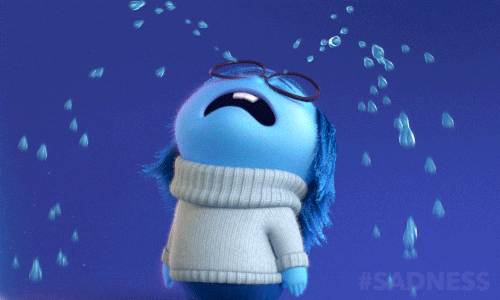What I Learned From Miss Miller
announcements
Join our upcoming Five Tips for Thriving This School Year workshop to equip yourself with practical strategies for a successful and less chaotic academic year. This workshop will cover essential topics like creating a positive homework environment, fostering independence, and maintaining effective communication.
the heart of the matter
My work focuses on kids with big feelings and big behaviors, those we politely label “spirited kids.” I was one of these kiddos. In 5th grade, a girl mentioned that my shoes looked too big for my feet. She asked if I was walking on canoes. Another girl laughed and before I had a chance to think, my emotions betrayed me. Tears escaped from my eyes and soon I was sobbing. I knew that the tease wasn’t that harsh. I knew that I should be able to roll with this or come up with a witty retort. Instead, I was a heaving pool of tears drowning in shame.
That year, I had Miss Miller – one of the great teachers of my life. She pulled me aside, let me gather myself, then asked me what was wrong. I told her what had happened. I told her that my mom had bought bigger shoes so that I could grow into them. I didn’t tell her that my family wasn’t rich like the other kids at the progressive private school that I attended on a scholarship. I didn’t tell her that I noticed when my clothes weren’t as on trend as the other kids’. I didn’t tell her that after my parents tucked me in at night, I could often hear them arguing about money.
She didn’t scold the girl who teased me. She didn’t tell me to not make a big deal about little situations or to toughen up. She sat with me and helped me feel calm and safe. When my tears were wiped and my breathing steady, she said something like, “Sometimes kids are going to tease, Edward. It’s not right, but it is inevitable. It helps to be prepared. What are some things you could have been ready to say?”
“I could tell her to shut up,” I responded.
“You’ll get in trouble for that one, and you’re more clever than that.”
“Maybe these big feet are why I’m the fastest in the school.”
“Better. Keep going.” She prompted.
“If these were canoes, I would paddle them away from annoying girls like you.”
“Wow! That’s excellent. I can’t condone calling her a name. But that IS a great response.”
Miss Miller explained that it was her job to ensure that people treated each other with respect in the classroom, but that she couldn’t police every interaction. She wanted me to practice responses to things that kids might say.
Looking back, I think she recognized that I was a sensitive, queer kid at the precipice of middle school’s inferno. I would soon emerge from my sweet bubble where everyone celebrated my unique personality and talents, and plunge into the politics of popularity, rigid norms, and 1980s toxic masculinity. Miss Miller was building my skills to face it all without compromising who I was.
Miss Miller’s response that day shaped how I think about supporting kids who feel deeply. Her actions weren’t dramatic or complicated, but they were exactly what I needed. And they’re exactly what so many kids need from the adults in their lives.
Let’s break down her moves, and how you can use her approach at home or in the classroom when your child melts down, lashes out, or collapses into tears:
1. Connect
When I was falling apart, she didn’t add fuel to the fire by dismissing my reaction or rushing me to stop crying. She didn’t say, “It’s not a big deal” or “Don’t let them get to you.” Instead, she stayed calm, stayed present, and helped me settle. Kids with big feelings often can’t calm themselves until someone else helps them feel safe. Miss Miller anchored me with her presence first—no fixes, no lectures, just connection.
2. Co-regulate
Miss Miller waited. She knew that learning doesn’t happen when our emotional brain is hijacked. Only when I was calm did she start asking questions and guiding me to think things through. Parents, this is huge: Wait for calm before you teach. (This part is so hard, but so worth it.)
3. Don’t fix
She didn’t scold the girl or call the principal. She also didn’t brush it off. She created space for me to process what happened and begin to navigate it myself. As parents and teachers, our instinct might be to jump in and fix. But sometimes the most powerful support is to help our kids build their own tools, not just solve the moment for them.
4. Build skills
She was honest: teasing happens, and while it’s not right, it’s part of the world. Rather than telling me to get over it or run for help, she asked me to practice. She helped me come up with responses that felt authentic, clever, and powerful. She cheered me on when I found my voice. She made it clear that I could be myself and handle hard situations. That’s the sweet spot we want for our kids.
When your child’s feelings are big and their behaviors overwhelm you, think:
Connect. Co-regulate. Don’t fix. Build Skills.
This approach doesn’t fix everything in one moment. But over time, it helps your child learn how to move through the world with confidence, resilience, and a growing sense of self.
Just like Miss Miller did for me, you can be the steady anchor that helps your child navigate their storm and emerge stronger.
Reflection: Think back to a recent moment when your child had a big feeling or big reaction. What would it have looked like to pause, connect, and co-regulate first—before teaching, fixing, or reacting?
we’re obsessed with
I spend too much time and energy thinking that I’m not good enough. I work so hard and it feels like I’m just keeping my head above water. This is why we need reminders like the voices in this excellent New York Times article, “Motherhood Should Come With A Warning Label”, that the systems are poorly designed for parent success. I read through this yelling, “Tell it, Sister!” at least half a dozen times.
If you have children under 12 you already know about K-Pop Demon Hunters. It seems that all American children are watching this Netflix movie on repeat. I want to encourage you to watch this show with your child at least once. Because the underlying message of the movie is that when we fully accept all the aspects of ourselves, even the ones that bring us shame, we unlock our full powers. This message is so important for kids who are neurodivergent, disabled, queer, or in any way out of the ordinary. But your child might miss this message if you don’t help them notice it.
Book a workshop for your school or organization.
Bring The Village Well to your school or organization. We provide powerful, interactive and fun workshops for parents and/or staff. Learn more.
Ed Center, the founder of The Village Well, is a parenting coach and educator certified in the Triple P method. The Village Well is a community of parents in BIPOC families, focused on attaining more joy, calm, and meaning in family life. We coach parents to prioritize their own healing and wellness, deepen connections with their kids, and learn tools to support better behavior. Services include Parenting workshops, Parenting courses, and community events. Our support is culturally-grounded support and honors your unique family. Ready to stop yelling? Schedule a free consultation with one of our team members.
FOLLOW THE VILLAGE WELL ON:




